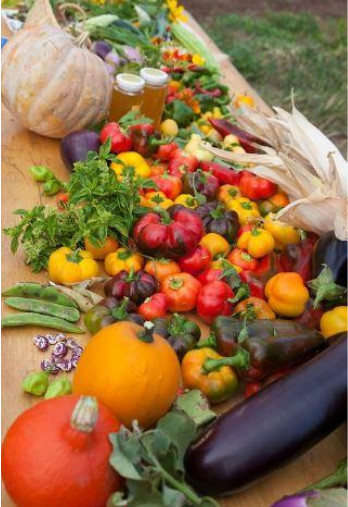Making Meals

As a middle class male growing up in Japan in the late 1940s, 1950s and 1960s, my friend Nobu enjoyed the privilege of never having anything to do with meal preparation. Three delicious repasts appeared in front of him each day and afterwards, the dirty dishes disappeared.
When work brought him to Hawaii in his twenties, Nobu fell in love with a demure Japanese-American woman, soft-spoken Betty. I wouldn’t have imagined that Betty had the gumption to stand up for herself, but she must have. Nobu learned how to be an American husband: to bar-b-que and to assist with shopping, meal preparation, setting the table and washing dishes. He was astonished at the amount of labor and time required to accomplish something he’d taken for granted for most of his life.
As a child growing up in the same era as Nobu, I fully participated in all phases of food production and clean-up. We lived on an acre of vegetable garden and orchards, along with a chicken coop. I proudly “helped” Dad slaughter chickens. Later in the day, I endured the hens’ pecking as I darted my hands forth to grasp warm smooth eggs. I stowed the brown, green and blue eggs in our refrigerator, ready for our morning’s breakfast.
Each autumn, upon harvest of the gardens and orchards, we canned the bounty. My Dad often provided fish from a nearby stream. My parents frequently reminded us to be grateful for all they did for us. I’d never felt as though I took food, its preparation or its availability, for granted.
However, recently, I surprised myself by experiencing something similar to Nobu. Now in my retirement years, I treated myself to a cruise on a small ship, only thirty-nine passengers. A skilled chef bestowed us with three exquisite meals each day, surprising in their taste combinations, such as peppery arugula with tart pomegranate. Each plate became a beguiling art-like presentation with contrasting purple eggplants with ripened tomatoes one day. The next day orange yams contrasted with green honeydew and rough roasted browned and white fish. After ten days, I began to take the meals for granted.
One day, docked in a port, I happened to walk to the back side of the small ship. I hadn’t noticed that much of the space in the back consisted of large refrigerators and other types of storage bins. A huge food delivery had just been arrived. Many opened boxes covered the entire back end of the boat. As I zigged and zagged in between crates, I could see all the raw ingredients that would go into our meals: cantaloupe, granny smith apples, red bell peppers, leeks, whole fish, pink steaks, heads of purple cabbage and romaine, yams, tomatoes, oranges. I marveled at the colors and knew how much work it would take to transform these gems into a cooked meal.

All at once, I remembered my friend Nobu. I felt chagrin at myself. I had become just as spoiled as he had been, taking beautiful breakfasts, lunches and dinners for granted. I stopped and immediately said prayers of gratitude for my wonderful shipboard meals. At the end of the two weeks, I gave the chef and his staff a generous tip.
The next time I saw Nobu, I asked him if his American habits persisted when he returned to Japan to visit family. He laughed. “Of course not. As soon as I land in Japan, my meals all appear before me as if by magic. I love it. I would never cook or offer to wash up in my homeland.”
I grinned, for I understood how much he must relish his Japanese meals that he now realized were a luxury.

Cate Burns is the author of Libido Tsunami: Awash with the Droll in Life, in which she unearths the ludicrous in the emotional live traps surrounding us — in families, friends and disastrous romances. Get it on Amazon today.
